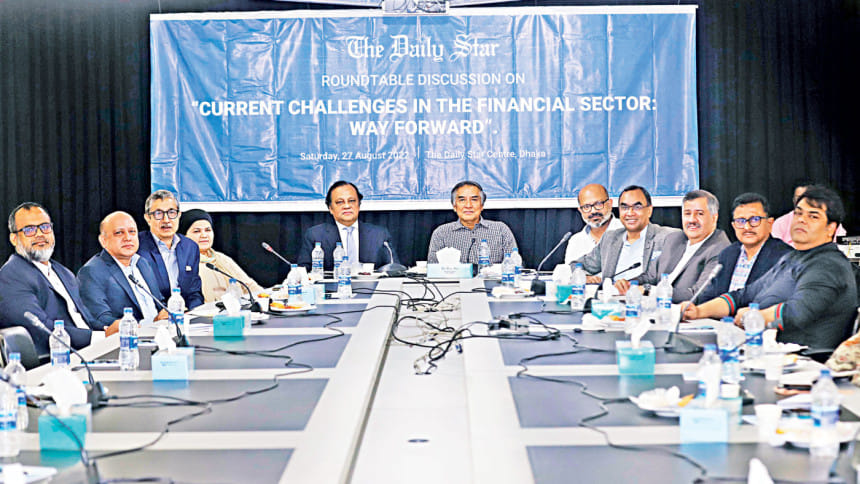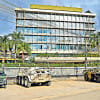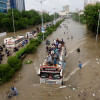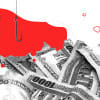Bangladesh economy: Not in crisis but under stress

Bangladesh's economy is experiencing stress because of the pressure on the foreign exchange reserves, but the situation is not as alarming as many think, said top brass in the financial sector yesterday.
Still, policy-makers and all other stakeholders should work judiciously to help the country ride out the current situation, they said at a roundtable styled "Current Challenges in the Financial Sector: Way Forward" organised by The Daily Star at its office in Dhaka.
They called for strengthening corporate governance in the financial institutions and taking sustainable measures to bring remittances and foreign direct investments to solidify the foundation of the economy.
"There is no need to panic and all stakeholders should work together to resolve the ongoing pressure on the economy," said Syed Mahbubur Rahman, managing director of Mutual Trust Bank.
He said that the central bank had purchased a record volume of US dollars from banks in the fiscal year of 2020-21, injecting a hefty amount of money.
The Bangladesh Bank has been supplying dollars to banks since the beginning of the last fiscal year, creating a liquidity crunch.
As a result, the interest rate on fixed deposits has recently gone up to 6-7 per cent in contrast to 2.5-3 per cent during the height of the pandemic, he said.
The liquidity crunch will intensify competition among banks to collect deposits, Rahman warned.
According to the banker, banks' profit from their core businesses such as lending has declined, a development that usually sends a negative signal to foreign corresponding banks about local lenders.
Managing income from foreign exchange businesses is not considered core profit, he said.
He said banks are mobilising US dollars in the form of remittance from foreign exchange houses quoting Tk 110-Tk 111 per USD in a bid to meet their needs.
Lenders sell each dollar at Tk 103-Tk104 to importers to settle their import bills.
"We should behave rationally to run the foreign exchange business," he said.
Anis A Khan, a veteran banker, described the government's austerity measures aimed at tackling the current challenges as a move in the right direction.
"Ensuring corporate governance is extremely important. We lack corporate governance at both state-owned institutions and private companies," he said.
He said that operating boards should run corporations independently.
Khan suggested the central bank draw up monetary policy every three months instead of six, in view of inflation.
Emranul Huq, managing director of Dhaka Bank, said the government has taken a number of measures, especially aimed at power and energy savings.
"A liquidity crunch has created along with the dollar shortage."
Humaira Azam, managing director of Trust Bank, thinks it is very important that Bangladesh attracts foreign portfolio investment and foreign investment.
"This should be priority," she said, calling the current volatility in the foreign exchange market as temporary.
The first female CEO of any commercial bank in Bangladesh, Humaira stressed increasing tax collection.
"This a high time we needed to go to the taxpayers. A large number of people has remained out of the tax net despite having taxable income."
She emphasised attracting remittance through formal channel.
"A long-term incentive mechanism should be considered for remitters so that they feel inspired. The existing 2.5 per cent incentive would not be able to lure many migrant workers for a long time."
"Providing long-term educational support to the children of migrant workers can be considered. We have to have a long-term lucrative package to attract remittance."
Mamoon Mahmud Shah, managing director of NRB Bank, said: "The current problem appears to be short-term and we can overcome it."
He cited the low recovery of loans and non-performing loans as challenges.
Banks will have to hike the deposit rate in line with inflation, which rose to a nine-year high in June, to comply with the Bangladesh Bank directive that the interest rate on deposits should not be below inflation.
"Higher inflation is also affecting the deposit collection for banks as savers have encashed 35 per cent of their fixed deposits. The market is getting dry and the lending is getting lesser lucrative and profitable."
Kamal Quadir, chief executive officer of bKash Ltd, said mobile financial services are bringing funds from millions of people into the formal channel.
"We monitor domestic money transfers and we have not seen any kind of downward moves when it comes to transactions," he said, while speaking about the current situation.
He said the expansion of MFS has benefited Bangladesh.
"Today, Bangladesh has the capacity to allocate resources to any of its parts within a minute."
Remitters receive more than Tk 10 per USD if they send money through the informal channel rather than the formal channel, and the gap can't be narrowed by the government's efforts alone, said Tanvir A Mishuk, managing director of Nagad.
He suggested taking steps to enhance remittance earnings through the formal channel and put an end to hundi.
"In order to give the scope to the government to continue development works, the tax net should be widened," he said.
Bangladesh has one of the lowest tax-to-GDP ratios in the world.
The central bank has brought some changes to the rules related to default loans and rescheduling. As a result, the loan recovery may fall to some extent, said Syed Javed Noor, deputy managing director of IDLC Finance.
"A non-payment culture has developed among many borrowers. But how will a financial institution continue lending if loan collection falls?"
On the other hand, the BB has mopped up more than Tk 70,000 crore from the market by selling dollars, making the banking sector dry.
"Under the circumstances, the central bank should increase liquidity in the market by offering some refinance schemes."
Noor recommended monitoring oil prices in the global market to reduce the shocks related to the petroleum price movement and also suggested focusing on food security as drought in many countries may send food prices higher internationally in the coming days.
Digital payments are rising in the Asia Pacific region at a faster pace than in other regions, so the government should promote it through incentives, said Syed Mohammad Kamal, country manager of MasterCard.
"If you make purchases from a shop next to your door in cash, no value-added tax is levied. But if you go for digital payments, the VAT is added to your costs, which is just the opposite compared to the practice in the developed world."
Kamal sought a 5 per cent incentive for customers and merchants to boost digital payments.
Ahmed Shaheen, additional managing director of Eastern Bank, said the economy was stable just a few months back, but pent-up demand, supply chain disruptions, price shock and the Russia-Ukraine war have joined together to create stress in the economy.
The main exporting sector which is readymade garment may not be impacted significantly as most factories still produce low-cost apparel items, he said.
According to Shaheen, the prices of goods in the international markets have begun falling after touching their peaks.
"So, there is nothing to be worried about."
He touched upon the unsettled import bills, terming it a continuous process.
"So, it is not going to create any crisis for the foreign currency reserves. The reserves might see fluctuation in a country whose GDP is rising. So, it is not a matter of concern."
He called for utmost focus on maintaining corporate governance, extending refinance scheme, and diversifying exports.
"Export credit guarantee schemes should be rolled out to promote new export destinations and products."
Mahfuz Anam, editor and publisher of The Daily Star, moderated the roundtable.

 For all latest news, follow The Daily Star's Google News channel.
For all latest news, follow The Daily Star's Google News channel. 








Comments